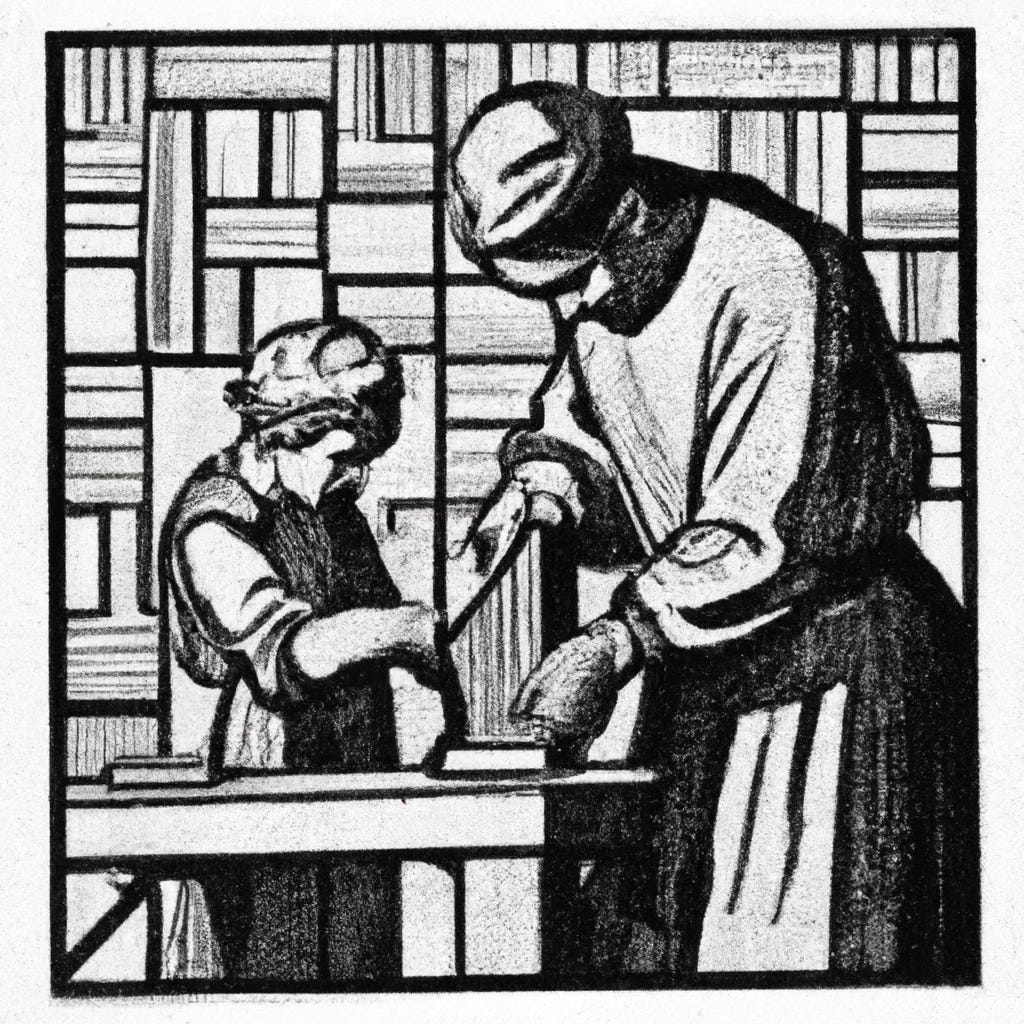At the core of our faith is the profound truth that the infinite and inexhaustible, the depth and ground of all being, became a human life. To use the daring and enduring maxim of Athanasius:
God became man, so man might become god.
Or to use C.S. Lewis’s version:
The Son of God became a man, to enable men to become sons of God.
It’s a supreme truth, God became the image and likeness for us, so we could become the image and likeness of him. This is what Christianity calls the Incarnation:
Word becoming flesh
Son becoming Christ
Image becoming likeness
The Incarnation manifests to the world our telos, the formation of a human life into the divine likeness. Jesus of Nazareth was both fully human and fully divine, growing up in the Judaean countryside, living a life that the world has not been able to recover from. No one had ever experienced it, no one had ever imagined it, but everyone wanted to be near it (Jn 12:19).
In a deeply mysterious way, the Incarnation opened a way for every human being to receive, cultivate, and become the likeness of God.
Therefore, the God who was born, wants to be born in us. The God who grew, yearns to grow in us. The God who matured, longs to mature in us. This is why we take the Threefold journey, to, like Christ, incarnate God in our body, to enflesh him in our world. Jesus did it; he will show us how. He’s our model — the master artisan. With the Incarnation, God communicates to the world, in a very unambiguous way, this is what He says:
I became like you, will you become like me?
A Mimesis Metaphor
All of this explains why Jesus invited people to follow or imitate him. He expressed the invitation in many ways, but perhaps the most striking was:
Take my yoke upon you and learn from me, for I am gentle and humble in heart and you will find rest for your soul (Matt 11:29).
The metaphor of the yoke refers to a double yoke, a wooden crosspiece that was fixed over the necks of two animals and attached to a plow. It was a device for training a younger, less mature animal, with one that’s older and more mature. As both animals moved up and down the field, the younger animal would slowly learn the rhythm of the work. Sure there would be times when the immature animal would rush forward, racing through the day’s work. When that happened, the yoke would gently tug at his neck, slowing him down, getting him in step with his training partner. Then there were times when the younger animal would lazily slow his pace and once again the yoke was there to get him back in step with his training partner. With the double yoke, Jesus offers us a metaphor of mimesis — imitation by proximation — apprenticeship leading to artisanship.
Apprentice to Artisan
The Middle Ages were famous for producing a similar kind of process, a one-on-one method that transformed young people vocationally. As time took its course, and the training progressed, something remarkable happened. These young apprentices cultivated the same attitudes, behaviors, and habits of their masters, eventually becoming masters themselves.
This is what Matthew, Mark, Luke, and John put before us: a group of apprentices observing, learning, asking questions, and putting into practice what they see. When we read the Gospels, we discover what the divine life looks like fully developed in Christ and beginning to develop in his apprentices.
Christ’s invitation is to slip into the yoke with him, to train, to become like him. Just as an apprentice becomes an artisan, we too can become like Christ. We too can grow in a deeply intimate relationship of becoming, one in which we mature into a highly skilled artisan, drawing out of our human life, the infinite riches of divine life.
The Threefold way expresses this intimate journey of transformation, beginning as apprentices and ending as artisans. Walking this timeless path with Jesus is how we realize our telos. It takes grace and wise effort, God’s action and human participation. In other words, it takes yoking ourselves to Christ. If we do, then we will eventually find harmony for our two great conflicts: our conflict with God, and our conflict with ourselves.



Thank you. Great piece.
This is especially encouraging to me right now as I navigate my placement in God's body--discovering where he wants me at this time. Often, I'll question my abilities to do His work when I see others who seem so much more equipped (smarter, better memory recall, better public speakers), but your article reminds me that God can train anyone with his powerful yoke.